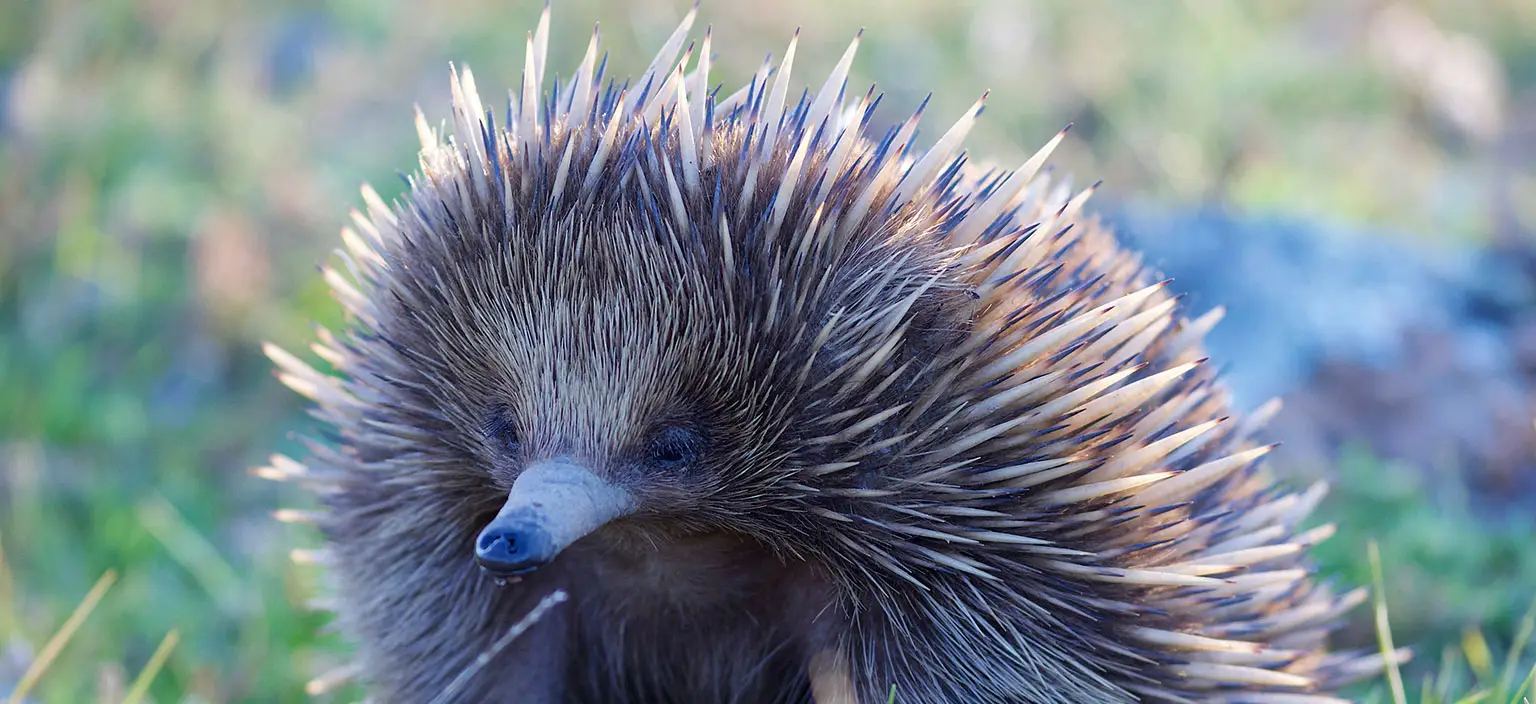Echidna

Echidnas are an odd looking animal, with spines of it's back it is also known to those across the world as a spiny anteater. Living in Australia, Echidnas belong to a group of animals known as the Monotremes.
Monotremes are a special group of mammals which lay eggs. The Echidna is a warm blooded animal which lays a single egg in its pouch, once the egg has hatched the female will carry the young in her pouch as Marsupials do. As the young Echidna starts to grow spines the mother will dig a nursery burrow for the young to stay in.
Mostly solitary and nocturnal animals, Echidnas are only seen with others during winter which is their mating season. Amazingly they can live for up to 50 years. They are in no means aggressive or territorial, if they see another Echidna or animal it will just ignore it. If an Echidna needs to defend itself it will burrow into the ground and point its spikes up to fend off or scare the predator.
Ancestry for the Echidna is fascinating, with ancestors dating back to the times of the dinosaurs.
The Echidna eats invertebrates such as larvae, worms, mites, insect pupae, and small spiders besides the usual ants and termites. They use their long sticky tongue to grab hold of the insects before eating them.
There are two types of Echidnas the Short Beaked Echidna and the Long Beaked Echidna. The Short Beaked Echidna still lives in Australia, where as the Long Beaked Echidna is no longer found on Australian soil although it has been found in Papua New Guinea.
In Australian there is a program running called the Echidna Watch this is used to document any data on numbers, breeding and habitat. If you see an Echidna or have any information on Echidnas on this area it is a great idea to contact the Echidna Watch area to help with research. The more information available on Echidnas in Australia means the more Australians can do to help protect this beautiful animal.
Echidnas are coming under threat from loss of habitat, natural disasters and humans. With Echidnas often needing help after being hit by a car. If you find a sick or injured Echidna it is important to remember that they have lower body temperatures then other animals therefore it is important not to keep them to warm as this could make them worse. Ideally contact an animal rescue group as soon as possible and do not attempt to feed the animal.
If you find a dead Echidna, check its pouch for any young. If you have found a young puggle (baby echidna) keep it warm as it is likely to still be hairless and contact your local animal rescue group. Remember not to feed it as cows milk can make an Echidna quite ill. If possible move the dead Echidnas body off the road out of respect for the animal.
Echidnas are a beloved Australian icon, with many Australians helping to give it the second chance they deserve so that there will be Echidnas in this country for a long time to come.



